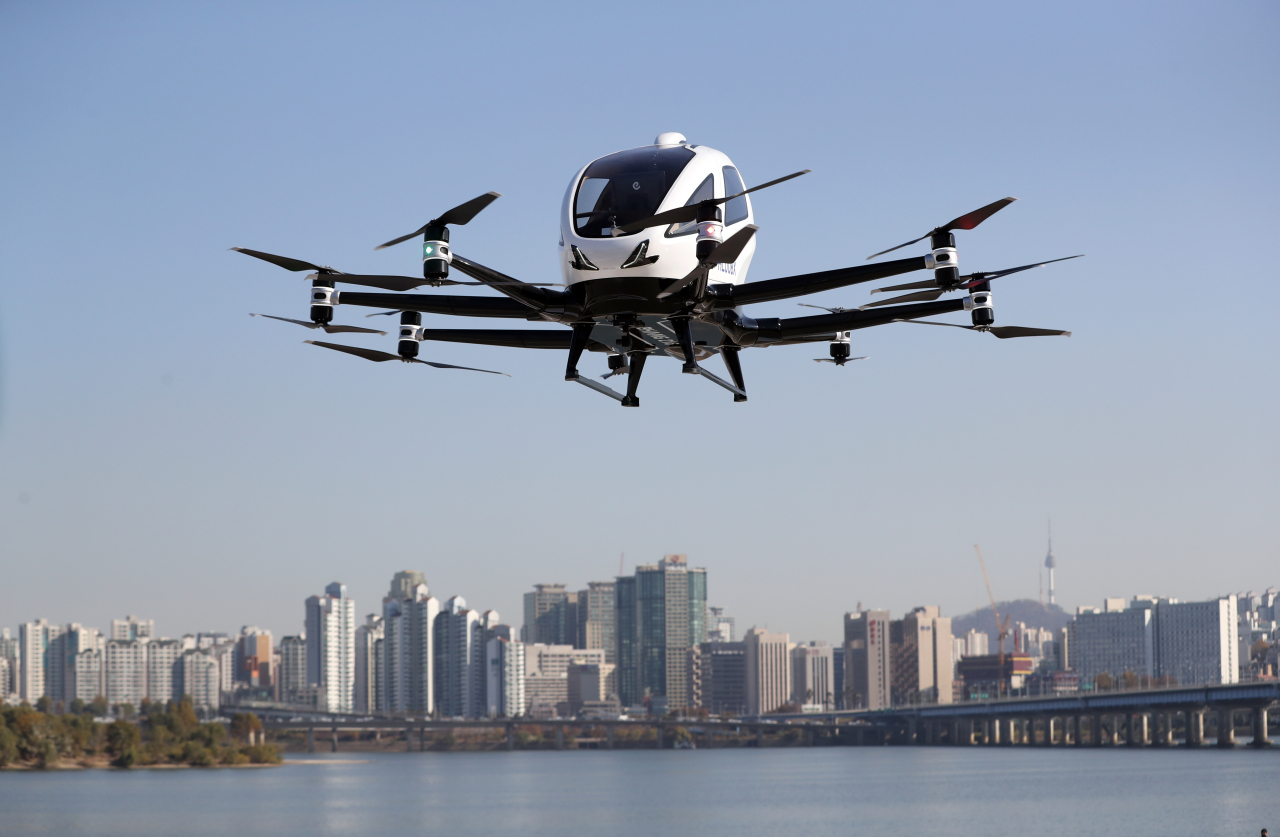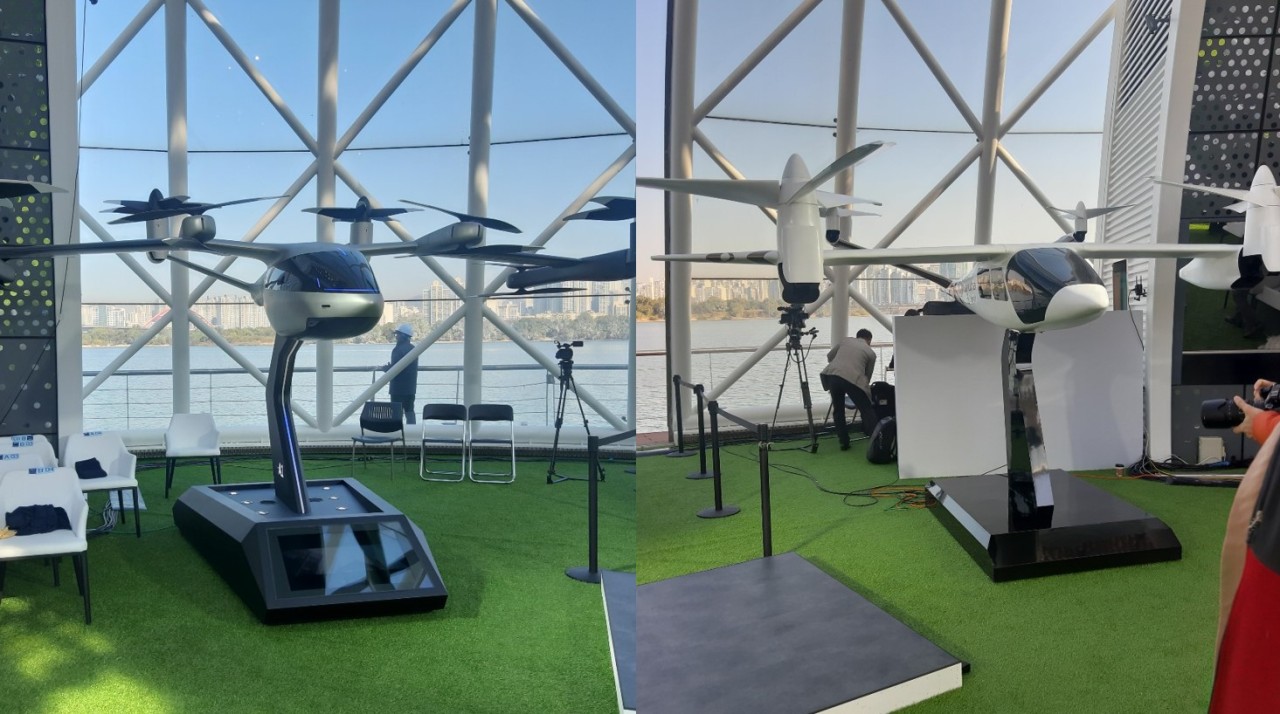 |
A two-seater drone taxi from China’s EHang flies without personnel on board at a demonstration flight event hosted by the Seoul Metropolitan Government and the Ministry of Land, Infrastructure and Transport on Wednesday. (Yonhap) |
A drone taxi flew over Yeouido, Seoul, for the first time Wednesday morning as part of South Korea’s road map to realize the commercialization of urban air mobility by 2025.
The Seoul Metropolitan Government co-hosted an event with the Ministry of Land, Infrastructure and Transport to demonstrate the drone taxi as part of future mobility that could ease the city’s traffic congestion.
For the demonstration, one two-seater drone aircraft -- with no one on board -- was used. The aircraft produced by Chinese drone maker EHang flew 1.8 kilometers around Yeouido Hangang Park, Seogang Bridge, Bamseom and Mapo Bridge at 50 meters above sea level for about seven minutes.
At the event, Korean firms Hyundai Motor and Hanwha Systems also exhibited their drone aircraft models being developed.
Hanwha Systems unveiled a mock-up of its personal air vehicle Butterfly that was one-third its intended actual size. The aircraft is under joint development with US manufacturer Overair. Butterfly is an electric vertical takeoff and landing machine, or eVTOL, which is equipped with eco-friendly and low-noise technology.
Hyundai Motor also exhibited an aircraft model being developed that was first introduced at the 2020 CES event earlier this year. It is being made in cooperation with US transport company Uber Technologies. Hyundai plans to commercialize the eight-seater drone taxi aircraft by 2028.
Urban air mobility is emerging as an alternative to traffic congestion in large cities that face limitations with ground transportation due to high population densities.
It is a next-generation transportation service that can accommodate traffic demands in urban areas of 30 to 50 kilometers without congestion by using electric powered aircraft capable of vertical takeoff and landing in urban areas.
 |
Lift Aircraft Hexa eVTOL drone (Yonhap) |
 |
Hyundai Motor (left) and Hanwha Systems exhibit mock-ups of their personal air vehicles. (Shin Ji-hye/The Korea Herald) |
The Korean government has established a road map to realize urban air mobility, aiming for commercialization by 2025. Starting from 2023, the Seoul Metropolitan Government plans to increase its utilization by using it for rescue activities in firefighting.
Through use of the future mobility vehicles, the Ministry of Transport expects a drastic reduction in the travel time between major hubs.
“The introduction of the new transportation system will dramatically reduce travel time. It will take passengers less than 20 minutes to go from Yeouido to Incheon Airport,” said Vice Minister Son Myung-soo at the event.
“By 2040, it will create 160,000 jobs and production inducement will exceed 23 trillion won ($20.7 billion). This eco-friendly system, which can save time and resources, can be used in countries where traffic congestion is a big problem.”
The speed of eVTOL development is quickening worldwide and commercial services are likely to be introduced in the US and Europe around 2023 and 2025, the ministry said. Uber plans to provide commercial service in Dallas and Los Angeles in the US and Melbourne, Australia by 2023.
By Shin Ji-hye (
shinjh@heraldcorp.com)










